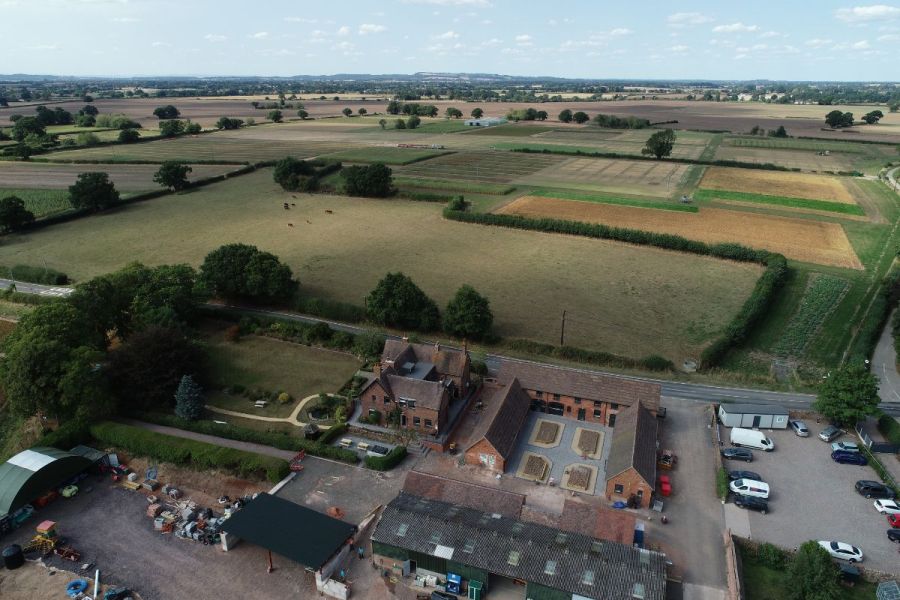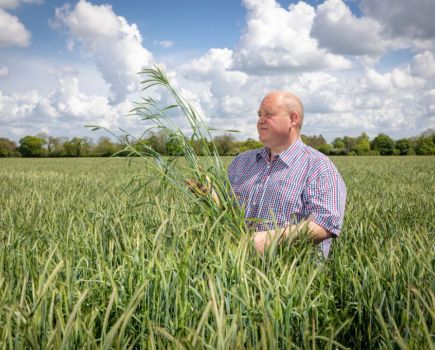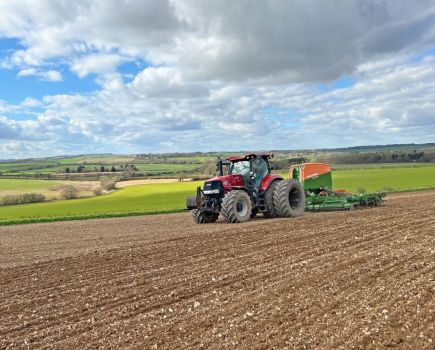With a history deep-rooted in traditional crop protection products, UPL is on a journey to transition to become a supplier of a wide range of holistic crop solutions – which go beyond what’s in a can. CPM finds out more about the company.
“The future is not just restricted to product in a can.”
By Charlotte Cunningham
Over recent decades, many crop protection products have come and gone from the hands of growers, and simultaneously there have been with the comings, goings and modifications to the companies who manufacture and supply them.
But with over 50 years of production under its belt, more than 10,000 employees globally and 43 manufacturing sites, UPL is a company firmly cemented in agriculture.
The company itself is a global manufacturer and supplier of crop protection products – the fifth largest crop protection company in the world. However, it spawns from much more humble beginnings.
In contrast to its huge global scale today, UPL started as a small family business – headed up by the Shroff family – in Vapi, India, in 1969 explains Gemma Nokes, head of marketing at UPL UK and Ireland. “It was essentially just a little shop in a street back then, and it has grown over time.”
Following its inception, the first product to be manufactured under the namesake was red phosphorus, something which saw UPL awarded The Presidents Gold Seal Award in 1972.
Three years later, in 1975, the firm ventured into export markets and just 12 months after that, made the move into production of agrochemicals.
With a keen eye on UK markets, in 1994 UPL completed its first international acquisition, taking over the UK firm MTM Agrochemical. These acquisitions continued organically worldwide, buying out firms across the globe – from America to Japan – and with that bringing many new products to its portfolio.
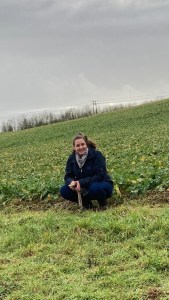
The purchase of Arysta LifeScience in 2018 was a significant moment for the firm, allowing it to expand its biological offerings, explains Gemma Nokes.
Moving into more recent times, 2018 marked one of the most significant acquisitions for UK markets after UPL announced the purchase of Arysta LifeScience in what was reported to be a $4.2bn acquisition. “This was quite a big moment for the company as Arysta had a very big biological portfolio at the time, so this was a real opportunity for UPL to dive into this sector,” explains Gemma.
Vaughn Stansfield, UPL country manager for UK and Ireland, picks up the conversation and explains the strategy behind this merger with Arysta. “UPL has set an ambition to be more than just a generic manufacturer and supplier by building more R&D into the business model.
“At the core of this is becoming sustainable partners in agriculture. Lots of companies within the sector of course have the same ambition at various levels, but UPL is setting itself out to be one of the leaders in this sector – both in the UK and globally.
“IPM is central to everything and is the beating heart of what we’re about, so we’re excited to be part of what we believe is a revolution in agriculture at the moment.
“At a global level, UPL has made initiatives to drive this, and a lot of this change came with the purchase of Arysta. It allowed UPL to drive forward its ambition and also change the structure of the business.”
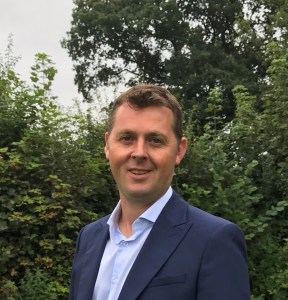
The purchase of Arysta allowed UPL to drive forward its ambition of becoming manufacturer of sustainable solutions, explains Vaughn Stansfield.
Part of this restructuring brought into focus the OpenAg strand of the business – a name which has now become synonymous with the UPL brand name. “OpenAg is essentially UPL’s physical manifestation of a desire to become increasingly more collaborative with customers, partners and wider stakeholders,” explains Vaughn.
“This collaboration is something that UPL has always been focused on historically – if you’re going to be a successful and thriving business in any part of agriculture, you can’t operate in isolation. But OpenAg made this a mandate – we are now consciously thinking about and working on opportunities to collaborate.
“While we’d like to be drivers of change, we’re aware that we’re only part of a solution, so this collaboration is vital for the business and for farmers and growers.”
The offering today has come a long way from just red phosphorous, with multiple herbicides, fungicides, insecticides, seed treatments, PGRs and biostimulants in its armoury. In the UK, these products are supported by a team of more than 100 experts across the various divisions – including the R&D facilities and the manufacturing plant in Cheshire.
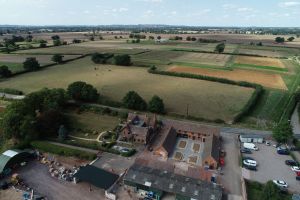
In 2020 UPL purchased the 70ha Shray Hill farm in Shropshire to enhance its R&D programme and to enable the business to evaluate its latest products in a commercial setting.
In terms of traditional chemistry, Centurion Max (clethodim) has been the flagship product for the brand, explains Vaughn. “This was an Arysta product originally but was brought back into the marketplace to help growers control blackgrass in oilseed rape and other crops, including sugar beet.
“It’s a ‘dim’ and has a different resistance profile to some of the existing products on the market, which allows growers to achieve optimal levels of weed control – within a programme – across the crop. It’s a very significant product for us.”
The portfolio is also particularly strong in its sugar beet targeted products, he continues. “A huge area of expertise is provided through our technical manager, Pamela Chambers, who is well known within the sugar beet sector.”
However, in 2022, UPL is aiming to broaden its approach to crop protection. “UPL is really starting to move towards sustainable solutions and look at the problems – the pain points – of growers,” explains Gemma.
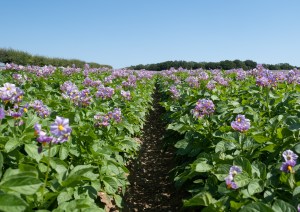
The Natural Plant Protection division was set up about two years ago to drive the development of naturally-derived products and supporting solutions, in a bid to accelerate the transition to a more sustainable way of farming.
This is evident within UPL’s Natural Plant Protection (NPP) campaign, which is due to launch this year. NPP is a global division which was set up about two years ago to drive the development of naturally-derived products and supporting solutions, in a bid to accelerate the transition to a more sustainable way of farming, explains Vaughn. “NPP is all about promoting the portfolio we have that comprises natural products – whether that be biostimulants or biocontrols. This is something we see as being a little bit different to our peers and competitors, but it has been a very conscious, structured investment decision.”
This portfolio of products will sit alongside and complement the traditional offerings, allowing growers to take a “hybrid” approach to crop protection, he adds. A good example of how this hybrid, innovative approach to crop protection can work is demonstrated within UPL’s potato offerings. “We have a range of bio-products, as well as herbicides, but we also have a strong focus on sprout management and a key product for us is Fazor – a plant growth regulator containing maleic hydrazide, which is used in the field to manage sprouting, primarily,” explains Vaughn.
“Last year we also launched Argos, which is based on naturally-derived orange oil, with d-limonene as the active. This is a new product which can be used in store to manage sprouting and boasts the additional benefit of being residue-free, which has advantages for the food chain. With the loss of CIPC (chlorpropham) a few years ago, managing potato sprouts in its entirety is a challenge. So on our part, we wanted to make sure there were robust alternatives to allow the whole supply chain to manage this better.”
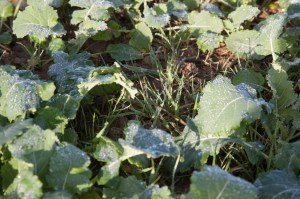
Centurion Max (clethodim) has been the flagship product for the brand, which was brought back onto the market to control blackgrass in oilseed rape and other crops, including sugar beet.
The NPP portfolio will also feature biostimulant offerings. While biostimulants are nothing new, the lack of regulation in this market has led to variation in product quality and efficacy over the years, says Vaughn. With this in mind, UPL has a small – but focused – range of products available to UK growers which have been backed up via trials data to ensure they’re able to consistently deliver the promised effects to growers, he adds. “We have biostimulants within the major crops – cereals and oilseeds – but also some which are designed for the horticulture and amenity sectors as well.
“But a product which might be particularly relevant to UK growers is Iodus (laminarin) – a biocontrol elicitor applied to winter wheat at T0. It’s designed to elicit the plants natural immune responses ahead of the main infection period for septoria, and other key diseases.
“Obviously, this has to be supported with other products, but this effectively puts the plant in a better position to fight any exposure to disease. We’re seeing increasing uptake of that product nationally and the feedback we get is all positive, so far.”
And the future is not just restricted to product in a can, adds Vaughn. “We’re now looking more at a range of services we can provide to growers, such as diagnostic or other agronomy services. Digital, forecasting tools and robotics are all areas we’re working on.”
UPL is also looking at alternative, non-chemical weeding solutions, adds Gemma. “This is still very much at its inception phase but is something we’re working on. Nothing is really off the table – everything is up for discussion depending on what the grower requirements are.”
Of course, there is still traditional chemistry coming through the pipeline too. “We’re looking to bring a new co-formulated sugar beet product to the marketplace, which will utilise existing active ingredients but within a formulation which will deliver better performance. Nationally, sugar beet is a very important crop,” says Vaughn.
Gemma says that the firm is also looking to expand its presence in the horticulture and amenities sectors. “The big challenge globally at the moment is to produce more food on less land with less chemicals. It’s not an easy thing to accomplish, so as a firm we’re looking at what we can do – beyond just the chemical arena – to help growers achieve this.”
Investing in testing
To aid the transition to beyond just the traditional chemical armoury and create products which tackle some of the more modern-day challenges, in 2020 UPL purchased a 70ha farm in Shropshire to enhance its R&D programme and to enable the business to evaluate its latest products in a commercial setting. “This complements the existing network of R&D sites and is specifically designed for the Europe North region, which includes the UK,” explains Vaughn.
Shray Hill farm, near Telford, comprises 30ha dedicated to research trials and the other 40ha to technology transfer and customer demonstration trials, as well as offices and conference facilities. It’s headed up by a team of 18 staff, including Jonathan Gill – formerly of Harper Adams – who heads up digital and ag tech development.
Cropping at the sites includes traditional combinable crops – both winter and spring types – as well as OSR, pulses, potatoes, sugar beet, maize, and pulses.
Marc Willis is the station manager who oversees the variety of projects and research programmes at the site. “The site is UPL’s Centre of Excellence for seed health, so product-wise, we’re increasingly focusing on natural plant protection here – about 60% of the work is now focused on natural solutions.”
There are plans for both short and long-term projects at the site which encompass a range of areas; from soil management and health, nutrition, water management, companion cropping, wider row planting and interrow seeding, as well as carbon capture as the industry moves towards its net zero goal, he adds.
Building on the firm’s goal to collaborate with the wider industry, there are also plans for projects with external partners. This includes Harper Adams and its Hands-Free Farm initiative, as well as ambitions to develop drone applications areas and work with equipment manufacturers to look at complementary technologies for crop establishment.
“We’re also partnered with the Soil Health Institute in the US and have dedicated a field to this work – specifically looking at improving workability and consistency of soils,” adds Marc. “More locally, we ran a small partnership with Limagrain this year, focusing on fodder beet variety choice and agronomy.
“We’re also members of CHAP and the Agri-EPI network and are openly looking for more collaboration going forward.”
Key stats
- 10,000 –The number of employees globally
- 13,000 – The number of global product registrations
- 138 – Countries where UPL products are sold
- $6.2bn – Revenue in 2021
- 43 – Manufacturing sites worldwide
- 18 – R&D facilities worldwide
Company profile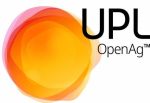
CPM would like to thank UPL for kindly sponsoring this article and for providing privileged access to staff and materials used to help put the article together.
This article was taken from the latest issue of CPM. For more articles like this, subscribe here.

